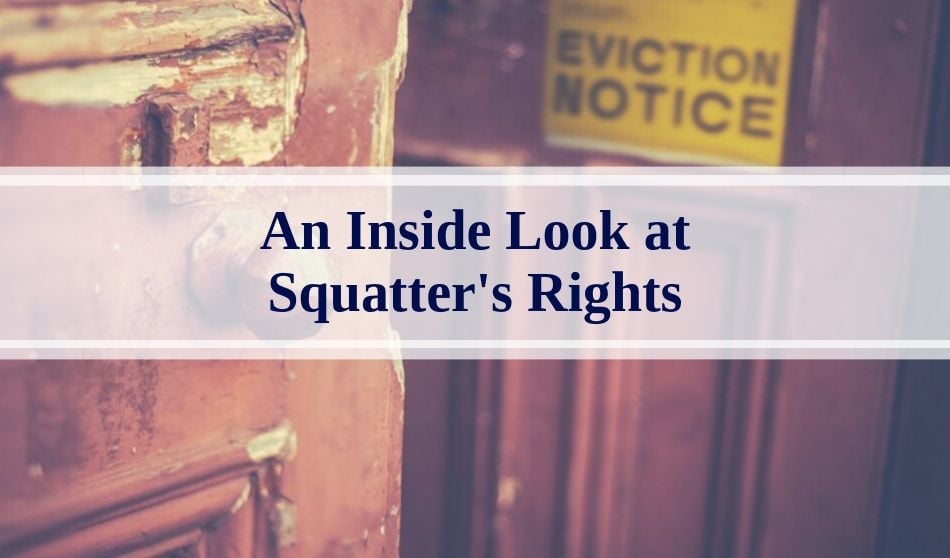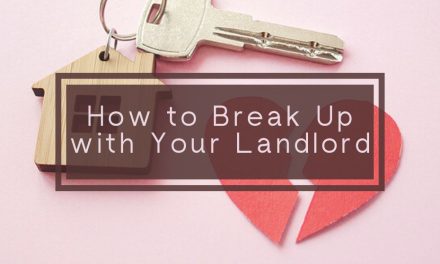
Removing unauthorized occupants who take possession of your property is tricky but not impossible. Let’s dive into the types of scenarios and what you can do to mitigate or navigate squatter’s rights in your favor.
What are Squatter’s Rights Exactly?
From the Roman Empire to the US westward expansion, throughout history laws have been in place regarding the occupying and ownership of property rights. In today’s terms, a squatter is someone without legal permission, continuously and openly for a number of years (according to statutes in each state) occupying or using the property as if it were their own.
In layman’s terms, it means that someone has taken possession of your property and unless you take action, given enough time they could lay claim to that property stripping you of your ownership rights.
What is Adverse Possession
After someone takes physical possession of a property, adverse possession is the process to then acquire the title to the property they occupy. Occupying an abandoned property isn’t cause enough to warrant an adverse possession claim.
One must reside in or make use of a property continuously. A squatter might pass along continuous possession to another squatter; called ‘tacking’ until the adverse possession period is completed. The squatter may have rights, implying entitlement, only if certain conditions are met such as:
- occupy the space for a specific period set out by the state
- not be hiding their intensions, open and obvious use
- make improvements (they may argue that these improvements were payment for the right to stay on the property)
- the actual owner has not attempted to evict them
- In some states, they must obtain the deed and/or pay taxes
Who is a Squatter?
Unauthorized Occupant
In general, anyone who has taken up residence or occupies space without express permission by the owner to do so is a squatter. They might also be a trespasser depending on how they gained access. Let’s look at some specific scenarios.
Unauthorized Property Use
The neighbor behind your rental property just completed their lovely backyard fence and perhaps with or without knowing it has encroached on your property by three feet. That three-foot strip across the back yard is now under their continued use. Given enough time and circumstance, those neighbors might become the proud owners of a larger parcel of land.
Rental Scam
You are just about to list a vacant property for rent. Heading over to stage the unit for some great listing pictures, you try to open the door and your key no longer works. To your surprise, someone swings the door open and starts interrogating you about your intentions. Come to find out, the occupants have been a victim of a rental scam and now refuse to move.
Scammers use vacant properties to lure people into signing a fake lease agreement. Posing as the landlord they trick people into paying them move-in fees. You and the tenants are victims but as the true owner, you carry the burden of finding a remedy.
Licensee
There are numerous headlines of people living in stores, shopping malls, or other odd locations without permission.
The term ‘licensee’ is used typically in regards to commercial properties but can also stretch across to residential situations that involve property lines, outbuildings, mixed-use properties, etc.
In any case, there is implied consent such as a customer coming into the store during business hours, or coming onto a property that isn’t marked as private.
Who is Not a Squatter?
If there has been a tenant-landlord relationship with the owner or property manager an unwanted occupant is not a squatter.
Holdover Tenant
A holdover tenant is a resident that refuses to move out at the end of their lease term. This tenant is legally allowed to stay in a rental if the landlord takes no action. If the landlord agrees to allow the tenant to continue residing past the lease agreement they would be ‘tenants at sufferance’ meaning they have stayed because the landlord tolerated the extension.
A tenant-landlord relationship doesn’t end when the rental or lease agreement ends but rather it ends when the tenant has moved out. Until then, residents are at-will with a month-to-month agreement until action is taken. All the conditions of the lease still need to be met such as prompt payment of rent.
Holdover Houseguest
You or a resident may have permitted someone to stay on or in a property for a short-term duration (with or without payment) and they refuse to leave. Although they have overstayed their welcome, they would have no ability to claim rights to the property.
Misuse of Property
Someone converting a storage unit or other commercial property into a living space is not a squatter. They may be in breach of the lease agreement but would not have a claim to any ownership rights.
Trespasser
Trespassing is a grey area as it requires the owner to prove that the nonowner is there without consent. It may also require proof that the occupant has forced themselves into the unit such as evidence of a broken window or door. Frequently a no trespassing or ‘closed’ notice would need to be posted to be considered trespassing as a criminal offense.
Steps to Regain Possession
Squatter, holdover, rental scam, unwanted guest — how do you regain possession of your property in an efficient cost-effective manner?
Law Enforcement
Because of the nature of the burden of proof, law enforcement is often careful not to get involved as they wish to avoid a false arrest and be subject to a lawsuit themselves.
Having said that, if someone refuses to leave calling the police might be a good idea to help build a case. Get a police report to show that you’ve ‘discovered’ them. It means you know that they are living in/on or using the property and that you disapprove. A squatter will then have no claim to the property, and you’ll have documentation if an eviction is necessary.
Be aware that if the occupant can produce mail addressed to them, a utility bill, a lease, or any other documentation (even if faked), typically the police will not remove or arrest them and you will need to take action in civil court instead of criminally.
Cash for Keys
One method of gaining back your property is to offer a cash incentive to leave. It may seem counter-intuitive to spend money to save money. However, the longer the unwanted occupant stays, the potential property damage and legal fees, not to mention the loss of rental income, can snowball into an astronomical amount.
Offering a moving incentive should include a signed agreement that they will not strip the property of fixtures, appliances, or other features and is clear about their belongings and condition of the property on move-out.
If law enforcement nor payment arrangement is working, you may have to resort to eviction.
How to Evict Someone
Evictions are costly and time-consuming so at all costs be sure to take all the appropriate steps. Before or during an eviction, be very careful with your words. If you carelessly tell someone, “whatever” and walk away, that and other off-handed remarks could be twisted to sound as if you gave consent.
Just as you don’t want a vague rental agreement leaving you vulnerable, ambiguous comments can also be misconstrued as agreement. Don’t say or write anything that doesn’t serve the purpose of clarity.
Keeping Your Property in Your Possession
Where and when necessary be sure to post ‘no trespassing and/or ‘private property’ signs.
Take caution giving consent for others to access the property. Houseguests, homeless, relatives, live-in help can turn into an unexpected or unwanted scenario.
- Make sure the home is occupied by qualified tenants.
- Have clear instructions in your lease agreements regarding house guests and subleasing.
- Conduct inspections yearly and on move out.
- Secure the property when not occupied. Consider installing security systems and external motion sensor lighting.
- Physically have eyes on a vacant property with frequent visits. If you are a long-distance or busy landlord consider hiring a property management company or third-party to be your eyes.
- Search the internet for your vacant property address to catch scams.
- When posting vacant properties for rent, watermark your property pictures with your contact information.






This information was very helpful in to my enquiry ..
Glad you found the information helpful, Sharm.
Ok my mom and dad have been living in a residence for 2 years and there was never any lease agreement on the property for 1 1/2 years…the cops brought a notice to quit giving them 3 day to sqauters the property…do they not have sqauters rights or they be made to vacate the property?
Hi Steven,
This situation will vary greatly based on their state and local laws, if any rent payment changed hands, and other potential factors. Your parents can check in with their local housing authority to see what/if their rights are in this situation, or can consult with a licensed attorney who is familiar with landlord-tenant laws in their area to find out the best recourse for their specific situation.
Wow 💯 Don’t knock it until you have tried it 🤔 2024 I am and will continue to care for the Property that im caring for part is State land part is privately owned completely unaffordable to build or for code enforcement , or to bring utilities here ,Soooooooo then I’ve been the caretaker and the responsibility is mine at 62 years young getting crumbs of money after years of building for business and Studio set Construction local 44 who stupidly joined in with the Writers Strike by the way they could give a Crap if my family lives or Dies as if they don’t make enough money BAD TIMING😁 also after the COVID Nonsense soooooo We all do what we can today Im Gratefully still squatting and believe me life California is Still expensive but thanks to this I enjoy my Ocean Views Nuthin is Free Trust me .